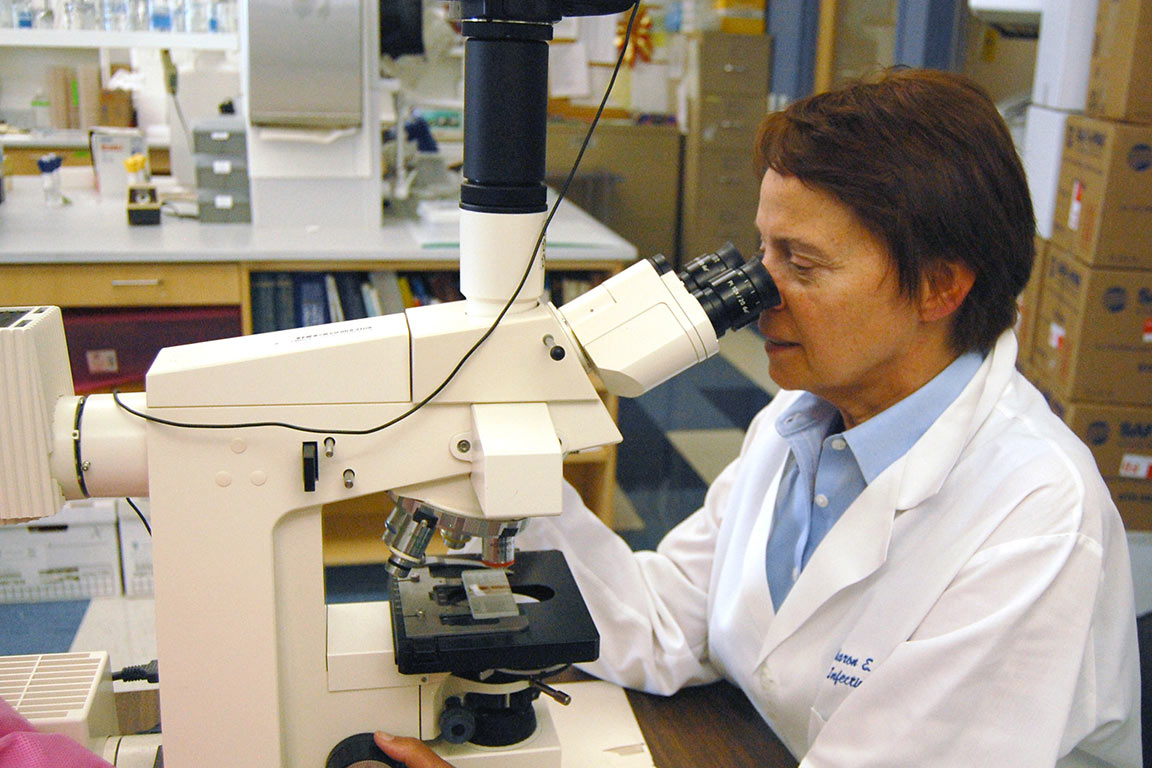As WHO Raises Alert, SLU Launches NIH-Funded Bird Flu Study
Saint Louis University continues the push to develop an investigational vaccine for avian flu, amid concerns that the viruses could mutate to cause a potential pandemic. Funded by the National Institutes of Health, the research is part of the federal government’s pandemic preparedness strategy.
“As the bird flu continues its global spread through poultry flocks across Europe and Asia, SLU vaccine researchers are studying a vaccine for the influenza strain known as H5N8. While people typically get bird flu directly from infected animals, we are investigating a vaccine in case the strain of flu evolves such that people can transmit it to each other,” said Sharon Frey, M.D., clinical director of SLU’s Center for Vaccine Development and principal investigator.
Concerned about the bird flu outbreak, the World Health Organization went on high alert in January, instructing countries to keep a close watch for avian flu outbreaks in birds and promptly report human cases.
The federal government wants to be prepared in case of a bird flu global health emergency. Vaccination is currently the most effective way of controlling flu and preventing its illness and complications.”
Sharon Frey, M.D.
“Scientists are worried that a bird flu virus could cause a pandemic. Several times in the past 100 years a new strain of flu virus has appeared. Because people had no resistance to these new strains, the illnesses were more severe, death rates were high even among healthy young adults and infection spread globally.
“In light of the recent increase of bird flu among people in other parts of the word, we’re increasing efforts to prepare in case of widespread infection. Developing a safe and effective vaccine is key.”
Up to 380 healthy adults between the ages of 19 and 64 will participate in the Phase 1 clinical trial, which will be conducted at SLU and five other vaccine research centers. Volunteers will receive two doses of the H5N8 flu study vaccine and may also receive one of two adjuvants, which are substances that can stimulate the immune system to produce more antibodies.
SLU will recruit up to 100 volunteers for the study, which will involve about 12 visits during a 13-month period. As compensation for their time, volunteers will receive $75 a visit.
Earlier this year, SLU completed enrolling participants in a similar Phase 1 bird flu study. More data on the body’s immune response will be collected during this subsequent avian influenza vaccine study.
The trial is open to volunteers who have not previously been vaccinated against an H5 bird flu in another study. Volunteers can’t get bird flu from the vaccine and will not be exposed to bird flu to test the vaccine. The investigational vaccine is not expected to protect people from the seasonal flu that typically occurs each winter.
“The federal government wants to be prepared in case of a bird flu global health emergency,” Frey said. “Vaccination is currently the most effective way of controlling flu and preventing its illness and complications.”
SLU is eligible to conduct the research because its Vaccine and Treatment Evaluation Unit is one of nine institutions selected in 2013 by the National Institutes of Health to help develop and evaluate vaccines of the future that will protect people from infectious diseases and emerging threats. The project is funded under Contract No. HHSN272201300021I. The federal government has funded vaccine research at SLU since 1989.
To learn more about vaccine research being conducted at Saint Louis University, call 314-977-6333 or email vaccine@slu.edu. For more information on this study, please visit the ClinicalTrials.gov website .
Established in 1836, Saint Louis University School of Medicine has the distinction of awarding the first medical degree west of the Mississippi River. The school educates physicians and biomedical scientists, conducts medical research, and provides health care on a local, national and international level. Research at the school seeks new cures and treatments in five key areas: infectious disease, liver disease, cancer, heart/lung disease, and aging and brain disorders.


















